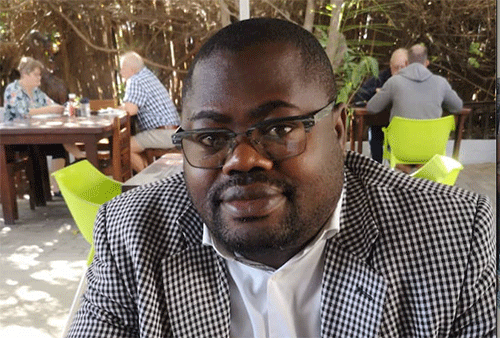Costar Musunga
Educational philosophy is a prerequisite to educational training to retain complete workmanship in the learning environment relevant to any society.
The turning of the new millennium has seen most countries evolve in the production of graduates in education, aiming at improving academic performance.
However, unlike in the past, academic performance has never been satisfactory with what is believed to be qualified personnel in the field. In Africa, particularly in Southern Africa, most education systems face challenges based on the application of allowable components of teaching that should be meaningful in the development of knowledge and skills required for economic development. The effectiveness of schools in educating learners is highly-dependent on the presence and nature of multi-leveled pedagogic leadership within each individual school.
In recent years, playmakers in education seem to be putting away the prominence of appropriate knowledge outlined by educational philosophy by trying to replace it with mere business practices and administration.
Education remains the main ingredient in society’s development. The apprentice-ship educational workmanship should embrace knowledge supported by guided principles in education. According to Shulman, pedagogical content knowledge (PCK) is a type of knowledge that is unique to teachers, and is based on how teachers relate their pedagogical knowledge [what they know about teaching] to their subject matter knowledge [what they know about what they teach].
The integration or synthesis of teachers’ pedagogical knowledge and their subject matter knowledge comprises pedagogical content knowledge.
Our teachers need to obtain training in education to strengthen their command of the knowledge build-up of learners, impact change in behaviour, and edifice the well-being of people and their environment.
The quality of education tends to be evaluated in terms of the number of learners passing national examinations.
The expectation of parents is that their children perform well in national examinations. The bigger questions are: are the teachers with such knowledge utilising it in response to the educational needs of the learners? Is it that maybe education is affected by incapacity caused by a lack of relevant skill bases that promote effective teaching and learning?
As custodians of the Namibian educational endeavours, we have the task of re-evaluating the specified content knowledge of our personnel to provide judgment that guides the steepness of our correlation cave in terms of academic achievement.
Our role as the education community is to guard against programmes that do not add value to the process of teaching and learning, encouraging continuous learning and expository commitment to the elements that constitute effective learning. It is time to evaluate the implementation of the pedagogical knowledg
obtained by our teachers in school,s and how it affects education-based leadership.
The scarcity of teachers in specified subjects has led our system to utilise academicall-y qualified teachers who do not have the pedagogical base to take holistic roles in teaching.
This has somehow relieved the stress on recruitment, but very little on the effectiveness of teaching and learning.
The main reason why this has been the case is that those most needed teachers receive very little enrichment towards the provision of pedagogical-related skills. The duration of their appointment limits their orientation to the provision of quality approaches to teaching. This has silently contributed to the decline in the academic performance of our learners.
I mentioned in my previous write-up that the qualifications that we preserve in education should be able to provide the education we need for our generation.
We need to maintain the educational merits as itsintention as stipulated in educational history. We should limit the involvement of educational playmakers who do not exhibit educational ideas through educational requirements provided by supporting educational philosophies.
The foundation of education lies in the strength of the paradigms associated with the skills base.
*Costar Musunga is a chief education officer in the Zambezi region. He writes in his personal capacity



